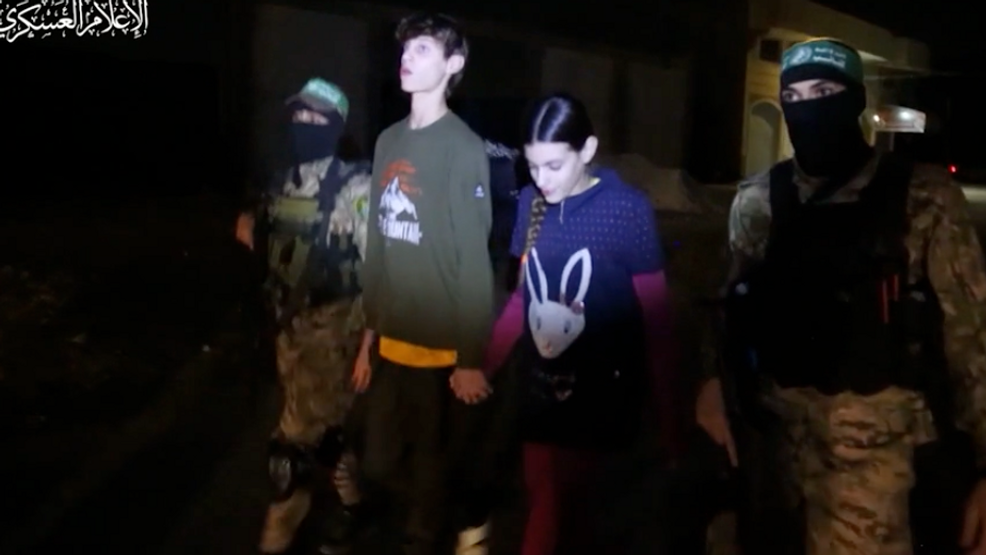
WASHINGTON (TND) — As hostages are released, the world is learning about the conditions they endured and still exist for those who remain in Hamas captivity.
Ahal Besorai and Tom Hand are among the family members of freed hostages who say their loved ones returned much thinner than they were before their kidnappings.
Besorai said his teenage niece and nephew, Noam and Alma Or, received “very little food, very little water. They came back very, very slim.” He said they were kept in the room of a house with another woman.
Hand’s 9-year-old daughter Emily was at a sleepover when she was kidnapped on Oct. 7. At first, he was told she was killed in the attacks, only to learn she had been taken hostage. They were reunited Sunday.
“(She) lost a lot of weight from her face and body but generally doing better than we expected,” Hand said.
Family of other hostages have told media outlets their meals were scarce, often just bread and rice. They share accounts of sleeping on rows of plastic chairs and having to wait more than an hour to use a bathroom.
Groups of hostages have been held separately and there are varying accounts of their degree of medical care. When 85-year-old Yocheved Liftshitz was released by Hamas in late October, she told reporters a doctor would visit every few days with medication.
The daughter of 84-year-old Elma Avraham, who was freed on Sunday, described a very different experience. During a press conference Monday, Tal Amano said Avraham was severely medically neglected, left without her necessary medication.
“My mother did not deserve to come back like this,” Amano said.
She said Avraham returned home “on the brink of death,” wounded and unconscious with a pulse of 40 and body temperature of about 82 degrees Fahrenheit.
“She was kept there in unfair conditions. She was abandoned twice. She was abandoned once on Oct. 7 and abandoned a second time by all the organizations that should have saved her and prevented her situation,” Amano said.
As some of the hostages return home, they’re learning for the first time that their family members were killed on Oct. 7 or are still being held hostage.
Psychoanalyst and expert in traumatic bereavement Merav Roth said their trauma is particularly complicated.
“These hostages were beforehand under many hours of shooting. Then most of them, their houses were burned down and that’s why they sneaked out and they were caught by the Hamas. And several of them saw their family members butchered, so this is a very complicated trauma and also, when they come out, they don’t have a home to come back to,” Roth said.
Treatment, she said, can’t wait.
“We need to take care of them immediately,” Roth said. “That’s what we do with post-traumatic stress disorder. We take care immediately because the first days are crucial.”

